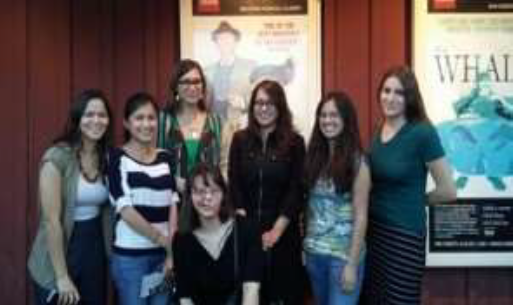Edith Frampton has expertise in dramatic literature and theatre practices, including Shakespeare in performance, while also researching and publishing on contemporary women's writing. She is the recipient of multiple awards for her teaching, including the 2016 Pitt and Virginia Warner Innovation Award. She is the invited Guest Editor of Contemporary Women's Writing: New Texts, Approaches, and Technologies, a November 2011 Special Issue of the Oxford University Press peer-reviewed journal Contemporary Women's Writing. Her essay "From the Nobel to Oprah: Toni Morrison, Body Politics, and Oprah's Book Club," appears in a 2010 University of Mississippi Press collection, Stories of O: The Oprahfication of American Culture. Published in 2009, in the Continuum volume Doris Lessing: Border Crossings, is her essay "Horrors of the Breast: Cultural Boundaries and the Abject in The Grass in Singing." An essay on prominent British dramatist, novelist, and poet Michele Roberts appears in the winter 2006 issue of Textual Practice.
Title
From Page to Stage: DH Pedagogy as Fieldwork
Goal
I designed a new interdisciplinary and multimodal course, called From Page to Stage, which combines scholarly research into dramatic literature, outreach to the local theatre community, pre-professional experience with arts institutions, and the creation of a digital repository of accomplishments and resources for other educators, students, arts administrators, and members of the general public. The goals of this new course are to connect SDSU to the broader San Diego arts community, to expose students to professional opportunities within local arts institutions, to foster a scholarly understanding of dramatic literature and theatre practices, and to create a digital presence for this class and the interrelated Shakespeare & Co. Drama Lab initiative of the Department of English and Comparative Literature at SDSU. I hope that this class can serve as a model for other interdisciplinary and multimodal courses at SDSU. Having created the model, I then employed aspects of it again in my course Shakespeare Comes Alive!
Lesson Plans
Throughout the semester in the From Page to Stage class, students collaborate on a Web or other project that will be presented to the class at the end of the semester. Early on, partners select a play that is scheduled to be performed at a local theatre, based on the presentations given at the beginning of the semester. Group members individually read the selected play and then analyze it together during class sessions designated for this, with the goal of preparing a dramaturg's portfolio on the play to make available to the theatre. The portfolio includes information on the play that could be included in audience members' programs and a school study guide, including classroom activities and corresponding Common Core State Standards that teachers could use who are bringing students to see the play. It is possible to use any sources for research, but all sources, including both quoted material and ideas, must be correctly cited and a works cited page that follows MLA guidelines must be included.
Outcome/Examples
Please see: https://sdsufrompagetostage.wordpress.com/introduction/ and:
 https://www.youtube.com/watch?v=CR5XgSfhtws
https://www.youtube.com/watch?v=CR5XgSfhtws
Reflection
I was excited about creating and implementing this innovative new course, which connects our San Diego State University Humanities students with local arts institutions, exposing them to career paths that they might not have considered, while simultaneously developing their skill as scholars and providing a digital repository for others. I had minor technical issues, since I only have minimal experience using WordPress thus far. Other than that, I must also admit that the creation and implementation of this new course required a tremendous amount of time on my part - far more than for a traditional course.
NEH Reflection
Creating a new course, and an experimental one at that, is always stimulating and rewarding, and so the opportunity to go back to the drawing board is always exciting. Since the Digital Humanities are so crucial to the work we do today, being afforded the luxury to focus on DH in relation to pedagogy was invaluable to me as a scholar and teacher. Furthermore, creating this course in the context of the NEH Project was particularly valuable to me in that it connected me with other scholar/teachers at my own institution and regionally. Since academics often find themselves working in isolation, it was refreshing and inspiring to work alongside others in creating an innovative digital humanities course.
click here for pdf file